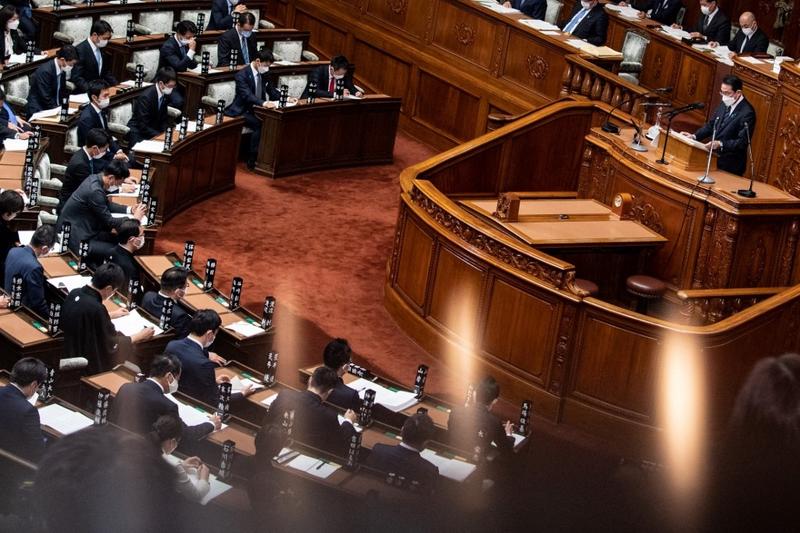 Japan's Prime Minister Fumio Kishida delivers his policy speech during the opening of the lower house of the parliament session in Tokyo on Jan 17, 2022. (PHILIP FONG / AFP)
Japan's Prime Minister Fumio Kishida delivers his policy speech during the opening of the lower house of the parliament session in Tokyo on Jan 17, 2022. (PHILIP FONG / AFP)
TOKYO - Japan's parliament on Tuesday enacted a record 107.60 trillion yen ($900 billion) budget for fiscal 2022 to cater to ballooning social security and defense costs as well as for provisions to counter COVID-19.
The budget for the year starting on April 1 was passed by the upper house of Japan's bicameral parliament, after it was approved in late February by the lower house and has hit a record level for the 10th successive year
The budget for the year starting on April 1 was passed by the upper house of Japan's bicameral parliament, after it was approved in late February by the lower house and has hit a record level for the 10th successive year.
ALSO READ: Japan warns of blackouts, issues dire plea to save energy
The allocation for spending on social security, which comprises a third of total spending, as Japan's society continues to rapidly age and simultaneously shrink, is the largest-ever at 36.27 trillion yen and compares to 35.83 trillion yen in the previous year.
Defense-related spending, meanwhile, also marked a new record at 5.40 trillion yen, as Japan aims to ramp up spending on new technologies.
The budget also earmarks 5 trillion yen in reserve funds that can be utilized as necessary to deal with issues pertaining to the ongoing COVID-19 pandemic.
New bond issuance for the new budget will drop to 36.93 trillion yen but debt-servicing costs will stand at 24.34 trillion yen, ensuring Japan's fiscal health remains the worst among industrialized nations.
ALSO READ: Russia halts peace treaty talks with Japan
This is compounded by Japan's high dependence on borrowing to finance its ever-increasing spending, and thus will likely take beyond Prime Minister Fumio Kishida's target of 2025 to achieve a primary balance surplus.
Along with the ruling Liberal Democratic Party and its junior coalition partner Komeito, which control both houses of parliament, the budget was also backed by the small opposition Democratic Party for the People.
ALSO READ: Japan manufacturers restart some northeast's quake-hit plants
DPP leader Yuichiro Tamaki said his party supported the budget because Kishida had promised to consider activating a "trigger clause" that when oil prices rocket would temperately cut gasoline taxes.



